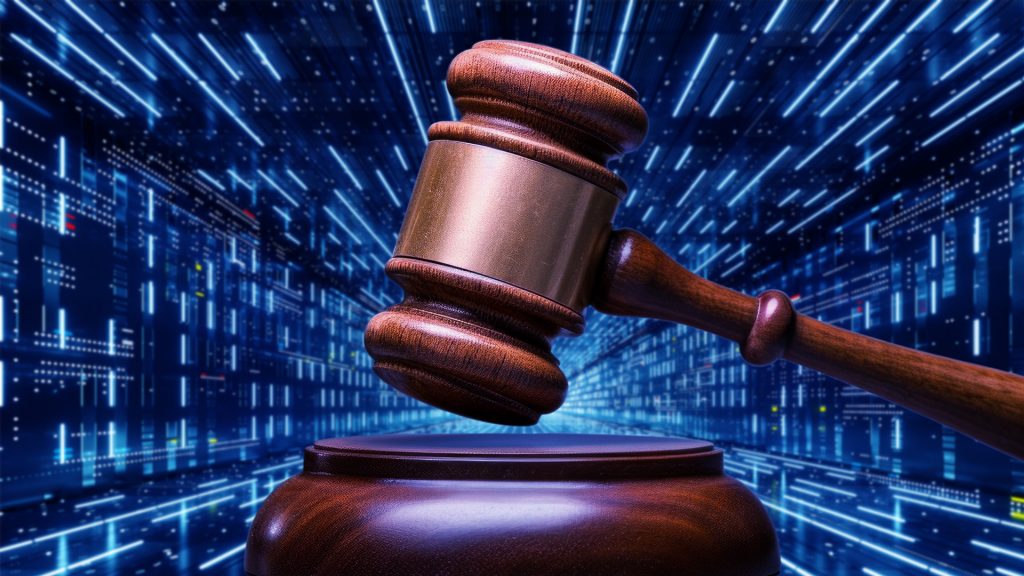AI is enhancing the US legal system, for better and worse

Artificial intelligence, or AI, is becoming more prevalent in every industry, including the legal system. Reports of lawyers getting in trouble after using AI to write legal documents is becoming more common.
Troubles with AI
In a recent case before the New York Supreme Court, an attorney got caught using AI for their filings. That lawyer got caught again using AI in a brief to explain why he used AI.
“It is now, more or less, a weekly event that this happens to some lawyer that kind of didn’t realize people would check these things or look into it,” Ryan Abbott, a partner at Brown, Neri, Smith & Khan LLP, told Straight Arrow News.
While there’s nothing intrinsically problematic about lawyers using AI, Abbott said those lawyers need to be aware about what they sign their name on.
“At the end of a day, the lawyer signing their name to a pleading needs to take responsibility that what’s in the pleading is accurate to the best of their knowledge,” Abbott said. “And if they’ve just asked a generative AI system to draft something, not validated it, and submitted it, they’re not doing that.”
There are consequences for those actions. Lawyers can be sanctioned for incorrect documents. Sometimes those can have an impact on the case itself, but that’s not as common.
“Courts are hesitant to punish parties for bad behavior by their attorneys,” Abbott said.
Punishments can become harsher to repeat offenders.
“You can get referred to a state bar, and a state bar can censure, suspend for egregious enough instances,” Abbott said.
AI in the legal system
AI gained popularity with lawyers following the release of ChatGPT in late 2022.
Less than a year later, the American Bar Association created an investigative group called the Task Force on Law and Artificial Intelligence. That brought together lawyers and judges from across the association to address the impact of AI in their profession.
That task force released a report in Aug. 2024 that raised ethical concerns, laid out certain challenges of AI, but also showed some benefits to having AI.
While incorrect legal filings are certainly an issue, there are many ways law firms use AI outside of the courtroom.
“It’s used very highly for things like discovery,” Abbott said. “It used to be you’d have basements full of lawyers and banker boxes going over documents. And now everything gets uploaded to e-platforms and AI goes through it. You still have a lot of human review though.”
Abbott said AI can also be used for doing legal research and it’s certainly not going away.
“Human lawyers aren’t going to increasingly get capable,” Abbott said. “So, we are only in for more use of AI and AI taking over more and more aspects of legal practice.”
Impacts on clients
If you’re in the market for a lawyer, it’s not legally clear whether they must tell you if they’ll be using AI in your case.
“Some of them disclose it, some of them don’t,” Abbott said. “I think there’s no general disclosure requirement. Sophisticated clients now often have AI provisions and engagement agreements.”
As mentioned in the task force report, there are some benefits to AI in the legal field.
For one, getting people more access to legal advice. Lawyers routinely cost $200 per hour at a bare minimum, which is very expensive for the average person.
“AI systems may do something comparable at a small fraction of the price,” Abbott said. “So it is, for example, very common now for self-represented individuals to be filing pleadings that were drafted using or partially using AI.”
Abbott said that’s something courts are on the lookout for but there’s really no sanctions a court can levy against an individual who’s not a lawyer.
“It’s effectively impossible to stop people from doing that,” Abbott said. So, I think courts are primed when self-represented individuals file things to be a bit more skeptical about what they’re filing.”
Abbott added that expanded access to legal help isn’t the only benefit.
“It has a lot of very exciting benefits as well to improving legal practice, cutting down on cost, dispute resolution timeframes, and doing all sorts of useful things,” Abbott said. “So, I’m very excited to see what happens with AI and the law from here.”
The post AI is enhancing the US legal system, for better and worse appeared first on Straight Arrow News.





